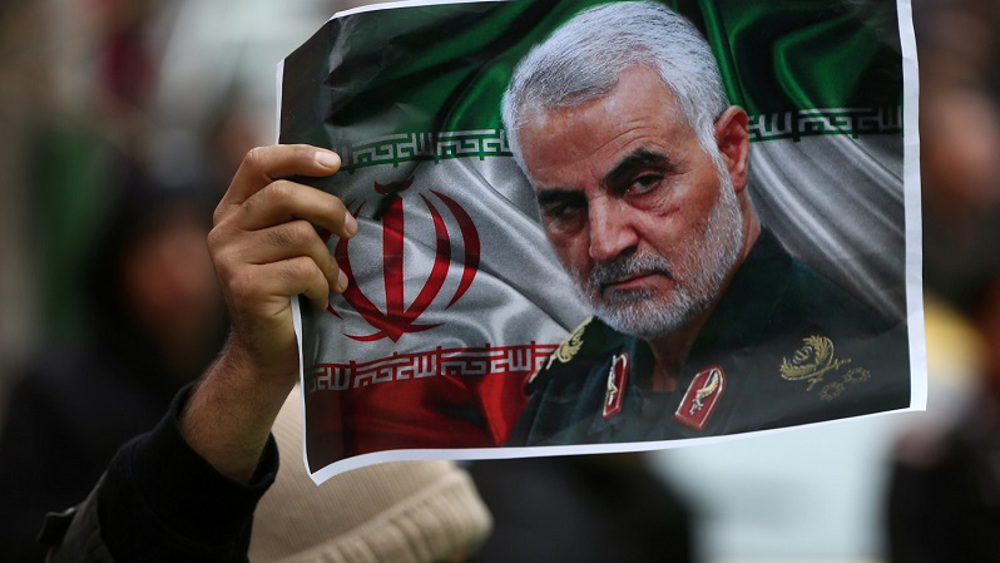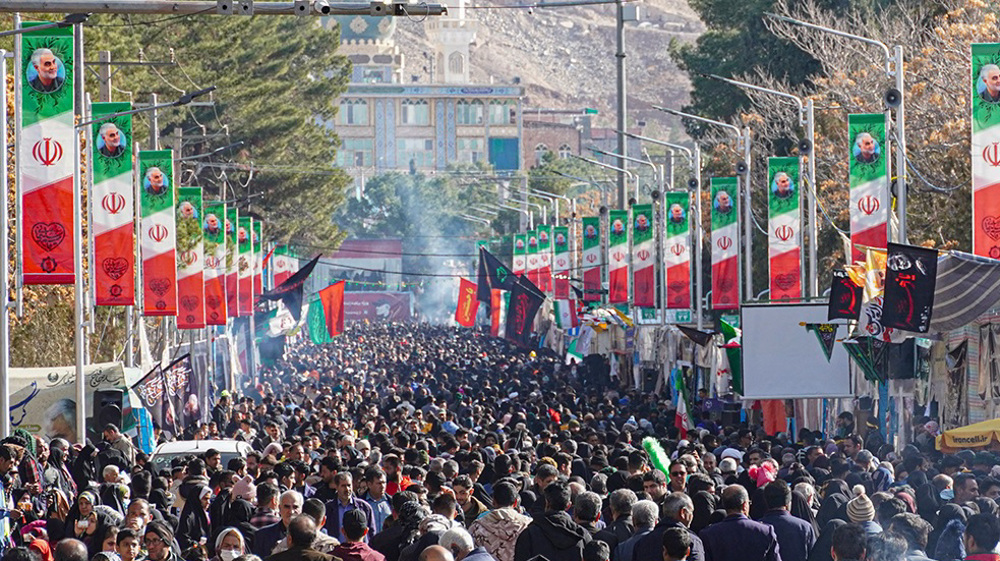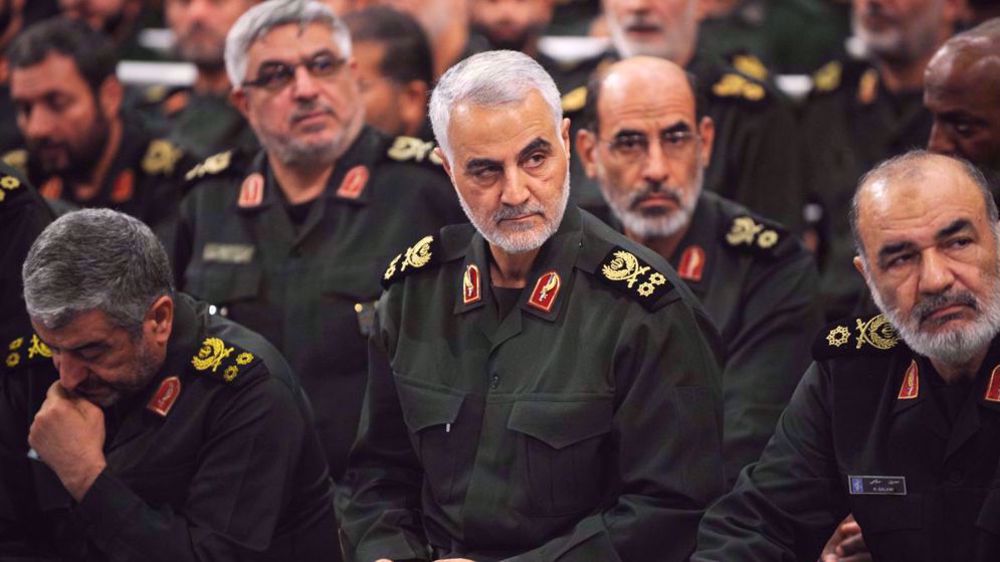The killing of General Soleimani
The killing of Qassem Soleimani by a drone strike on 3 January 2020 was carried out on the direct orders of President Donald Trump. But who was Soleimani and what role did he play in the development of the axis of resistance and in direct material support for the liberation of Palestine?
Soleimani was from humble origins. His father was a farmer and he began working in construction at the age of 13. In his early 20s, he joined the Revolutionary Guard following the revolution in 1979 and fought in the Iran-Iraq war from 1980, rising through the ranks.
He was appointed commander of the IRGSs Quds force in 1998 following which he played a significant and direct role all across the region. In Lebanon Soleimani sent military support to Hezbollah to help eject the Zionist invasion of southern Lebanon in 2006. He himself was present in Lebanon to manage the conflict. For Hezbollah, Qassem Soleimani was the field commander of the axis of resistance.
In Syria, Soleimani assumed personal control of the Iranian intervention. He reportedly coordinated the war from a base in Damascus with Syrian officers, Hezbollah and Iraqi Shia militia forces. In 2015, he was the main architect of the joint intervention involving Russia as a new partner with Assad and Hezbollah. Soleimani personally briefed President Putin on the strategy.
In Iraq, he fostering the resistance to the US presence and dealt a decisive blow against ISIS in both Syria and Iraq. The world has cause to be grateful to Hajj Qassem for this triumph.
In Palestine, Soleimani was also key. If it were not for him what kind of material, kinetic resistance in Palestine would there be without Iranian support? This is, of course, the reason for the vilification and demonisation of the Islamic Republic by the West.
As Saleh Al-Arouri, the deputy head of Hamas, put it in 2017, 'Iran is the most (hostile) country in the world toward the Zionist entity. Iran is the only country that says this entity is cancerous, and should be uprooted from the region. It is Iran and Hezbollah that confront that entity along with us.'
Hamas issued a statement following the assassination emphasising that, 'Qassem Soleimani played a major and critical role in supporting Palestinian resistance at all levels.' Ziad al-Nakhaleh, the head of Palestinian Islamic Jihads head, stated that 'the USs decision to kill Soleimani is an indication of the major role this man [played] in strengthening the resistance axis and the struggle for Palestine'.
Soleimani was a hugely popular figure in Iran and beyond with even Western polling showing overwhelmingly favourable views in 2019. But his legacy is much wider than Iran. His role and his memory have already cast long shadows over US involvement in the region and especially over the Zionist regime in Palestine.
Iran FM: US must abandon threats; Iran ready to respond to aggression
VIDEO | US protesters begin nationwide strike over ICE killings
VIDEO | More than 200 killed in coltan mine collapse in east Congo
Trump’s war posturing against Iran traces back to Bush’s infamous 2002 ‘axis of evil’ speech
ICE agents act as ‘provocateurs’; violence neither accidental nor unprecedented: Analyst
Pezeshkian: Trump, Netanyahu, and Europe sought to incite division within Iran
VIDEO | Gaza's damaged skyscraper: A ticking time bomb over displaced families
US okays new arms sales to Israel, Saudi Arabia worth over $15.5 billion









 This makes it easy to access the Press TV website
This makes it easy to access the Press TV website